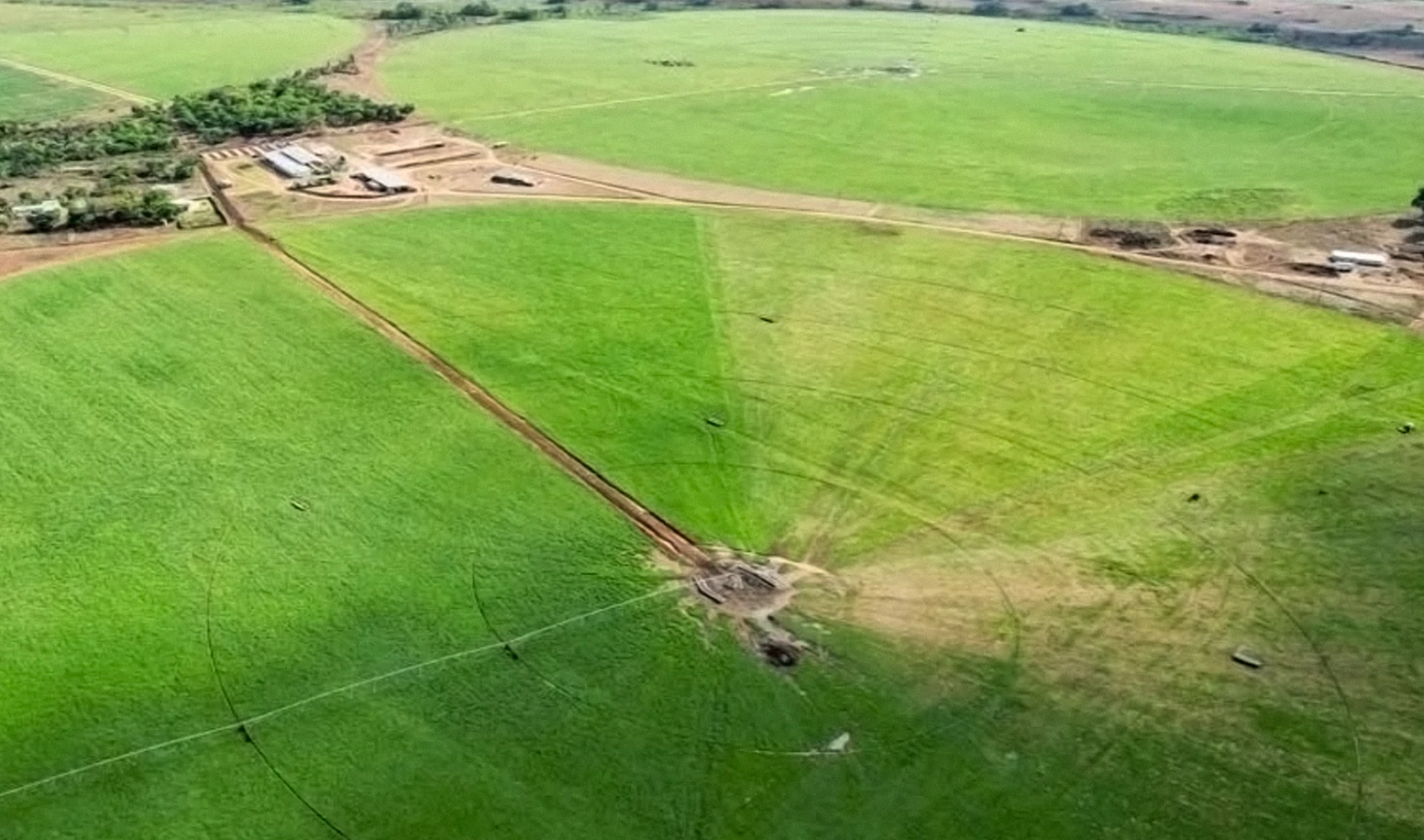SUSTAINABILITY STRATEGY & GOVERNANCE
Group Strategic Approach to Sustainability
The Group’s Sustainability Strategy is guided by our commitment to the environment and society, balanced with economic growth, and is embedded into the Group’s corporate strategy. We recognise that sustainability is a significant driver to how we manage operational risk and drive the strategic positioning of the Group for long-term business success.
The Group strives for a purpose-driven strategy, based on reviews of current circumstances where priority goals that are material and core to operations have been identified.
Through the use of systems and processes already in place, the Group has developed a data-driven approach with action-oriented plans. Sustainability initiatives are addressed and prioritised within the Group’s budget planning and resource allocation procedure.
Our strategy reflects our commitment to addressing the following key focus areas within our value chain:
- Sustainable resource use and commitment to environmentally responsible production practices.
- Social responsibility including access to best value consumer staple goods and inclusive economic development.
- Human capital and human rights.
- Climate change mitigation and adaptation.
- Local community involvement and development.
Ongoing stakeholder engagement allows for regular dialogues with key stakeholders on sustainability challenges, including regulators, investors, employees, suppliers, customers and the wider community.
We disclose our sustainability activities through our annual sustainability reports and regular stakeholder engagements.
Adherence to our strategy allows the Group to identify and realise opportunities that will secure long-term benefits, such as:
- Compliance and disclosure allow for the reinforcement of stakeholder’s confidence and trust.
- Contribution to more efficient operations and resilient supply chains.
- Opportunities to develop new, innovative and sustainable products.
- Better long-term financial and sustainable performance.
With an overall goal of systematic and continuous improvement throughout our operations, the Group is committed to ongoing investment in sustainable practices across our entire value chain.
Our Value Chain


National Foods - New Biscuit Plant
Principles and Considerations
The Group’s organisational governance is based on the principles of environmental and social responsibility, which is incorporated into the Group’s decision making and implementation processes.
These principles include:
- accountability for our impacts on society, the economy and the environment;
- transparency for our decisions and activities that impact on society and the environment;
- ethical behaviour based on the values of honesty, equity and integrity;
- respect for stakeholder interests whereby the Group respects, considers and responds to the interests of its stakeholders;
- respect for the rule of law where the Group accepts that respect for the rule of law is mandatory;
- respect for the international norms of behaviour while adhering to the principle of
- respect for the rule of law;
- respect for human rights, both for its importance and universality, promoting the rights set out in the International Bill of Human Rights;
- respect the welfare of animals, when affecting their lives and existence, including by providing decent conditions for keeping, breeding, producing, transporting and using animals.

East Range Mafuro Dairy Farm, Kwekwe
Governance of Sustainability
The internal Sustainability Working Panel is responsible for the Group’s sustainability strategy and policy. It is mandated by the Audit Committee and Board to integrate sustainability into business operations, including decision making and overseeing the management of the Group’s impacts on the economy, environment and society, along with compliance on sustainability disclosures.
The Panel sets the policies, goals and targets along with the monitoring of sustainability practices. The Panel is supported by the Sustainability Champions within each business in the Group and reports to the Audit Committee quarterly. The sustainability teams in all our companies are tasked with the identification, evaluation, monitoring and management of our impacts on economic, environmental and social issues, as well as identify and monitor material topics impacting their businesses. In addition, the teams are responsible for monitoring and evaluating systems from which data is collected to ensure quality and reliability.
Our sustainability strategy is implemented within the following framework:
- Compliance with local laws, regulations and requirements in the places we operate.
- International best practice and standards held by the Group companies, which include the International Management System Standards (MSS) of ISO 9001 (Quality Management System), ISO 22000 (Food Safety Management System), ISO 14001: 2015 (Environmental Management System); ISO 45001: 2018 (Occupational Health & Safety Management System); ISO 17025 (competence of testing and calibration laboratories); and FSSC 22000 (Food Safety Management).
- ISO 26000 (Guidance on Social Responsibility) to manage environmental and social issues within the Group’s companies.
- Protocols and commitments adopted or signed by the Government, which have a bearing on business sustainability such as the Sustainable Development Goals (SDGs) and the United Nations Framework Convention on Climate Change (UNFCCC) along with Zimbabwean frameworks such as Zimbabwe’s Vision 2030, National Development Strategies NDS1 (2021- 2025) and NDS2 (2026-2030), National Climate Policy, Climate Response Strategy, and upcoming Climate Change Management Bill.
- Group Sustainability and Environmental policies and Safety, Health, Environment & Quality (SHEQ) procedures.
- Global Reporting Standards (GRI, 2021) on disclosure and sustainability reporting.
Inclusivity and Responsiveness
The Group respects, considers and responds to the interests of its stakeholders. Although the Group’s objectives focus on the interests of its owners, members and customers, other individuals or groups also have rights, claims or specific interests that we take into account.
We
- identify our stakeholders;
- recognise and have due regard for the interests as well as the legal rights of our stakeholders and respond to their expressed concerns;
- assess and take into account the relative ability of stakeholders to contact, engage with and influence the Group;
- take into account the relation of our stakeholders’ interests to the broader expectations of society and to sustainable development, as well as the nature of the stakeholders’ relationship with the Group;
- consider the views of stakeholders whose interests are likely to be affected by a decision or activity even if they have no formal role in the governance of the Group or are unaware of our interests.
The Group understands the relationship between the stakeholders’ interests that are affected by the Group, on the one hand, and the expectations of society on the other. Although stakeholders are part of society, they may have an interest that is not consistent with the expectations of society nor have socially responsible behaviour.
Supply Chain
Our corporate strategy is to maintain a sustainable supply chain which thrives on shared values. Supply chain management is a critical component in our business value chain and sustains our brand name and image. Therefore, the Group provides systems which ensure that all suppliers are screened on their track record and consideration of sustainability issues such as their policies on the environment, social welfare, anti-corruption, statutory compliance and human rights. The Group strives to ensure that our suppliers share our common values for sustainability in our value chain. Appropriate training and support is provided to ensure quality standards are met.
Customer Welfare, Health and Safety
The Group recognises the importance of ensuring food safety and quality of its products. Our state-of-the-art laboratories monitor and ensure compliance to national and global food quality and safety standards. Guidance is also provided through our food safety and quality policies and procedures which govern our operations across the value chain. This includes sampling and testing of raw materials for quality, in-process checks and analysis, quality control and assurance, quality indexing and food defence, and product labelling. In addition, all food handlers undergo compulsory medical tests on engagement and annually thereafter.
The Group has systems in place to address any negative impacts associated with food safety and quality management. The Group engages with customers and addresses concerns as they arise. As customer needs and governmental regulations occasionally change, our systems are geared to respond in a timely manner to ensure legal compliance and consumer satisfaction.

TBBC - Product testing by Lylit Shereni
Sustainable Capital Management
The Group recognises that it is critical to apply integrated thinking in the manner in which we manage the capitals of our business. The Group considers natural, human, intellectual, financial, manufacturing and social relations as capital input into our business model. Therefore, sustainable management of this capital remains a critical aspect of our business strategy formulation and execution, for creating and sustaining business value for our shareholders and stakeholders in the short and long term.
